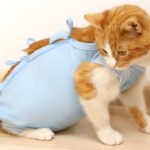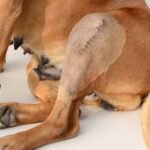Alternatives to Clay Litter: 10 Eco-Friendly Cat Options

- Introduction to Eco-Friendly Cat Litter
- Recycled Paper Litter
- Wood Shavings or Pellets
- Bamboo-Based Litter
- Wheat-Based Litter
- Corn-Based Litter
- Grass Seed Litter
- Coconut Husk Litter
- Walnut Shell Litter
- Soybean Litter
- Pine Litter
- Hemp-Based Litter
- Peat Moss
- Diatomaceous Earth (Food Grade)
- Recycled Cardboard Litter
- Silica Gel Litter (Biodegradable Versions)
- Barley Litter
- Cassava Litter
- Recycled Fabric Litter
- Tofu Litter
- Pea Fiber Litter
- Conclusion: Choosing the Right Eco-Friendly Litter
Introduction to Eco-Friendly Cat Litter
In recent years, the quest for more sustainable and environmentally friendly products has extended into the realm of pet care, particularly concerning cat litter. Traditional clay litter, while popular, poses several environmental concerns, including the method of clay extraction and its non-biodegradable nature. This has led pet owners to seek alternatives to clay litter that are not only better for the planet but also offer benefits such as being lighter, more absorbent, and often less dusty. This article explores a variety of eco-friendly cat litter options that serve as alternatives to clay litter, each with its unique benefits and considerations.
Recycled Paper Litter
Recycled paper litter is a popular alternative to clay litter for those looking to reduce their environmental footprint. Made from post-consumer paper products, this type of litter is highly absorbent, virtually dust-free, and softer on cats' paws compared to traditional clay. It's an excellent option for cats with respiratory issues or allergies. Additionally, recycled paper litter is biodegradable and can sometimes be composted, making it a sustainable choice for eco-conscious pet owners.
Wood Shavings or Pellets
Wood-based litters, including shavings and pellets, are another excellent alternative to clay litter. Often made from lumber industry by-products, these litters are natural and biodegradable. Wood pellets, in particular, are known for their high absorbency and natural odor control properties, thanks to the wood's innate ability to suppress ammonia smells. They are also low in dust and can be composted after use, although it's essential to remove any solid waste beforehand.
Bamboo-Based Litter
Bamboo-based litter is a newer entrant in the market of alternatives to clay litter. Bamboo is a highly renewable resource, growing back much faster than trees, making it an environmentally friendly option. Bamboo litter is known for its excellent absorbency, natural odor control, and biodegradability. It's also low in dust and lightweight, making it easy to handle and maintain.
Wheat-Based Litter
Wheat-based litter is made from ground wheat and offers a natural, clumping option as an alternative to clay litter. It is biodegradable and can be composted, offering an eco-friendly disposal option. Wheat litter naturally neutralizes odors and is dust-free, making it a good choice for cats and owners with respiratory sensitivities. Additionally, its soft texture is gentle on cats' paws, making it a comfortable choice for feline friends.
Corn-Based Litter
Corn-based litter is another biodegradable alternative to clay litter that clumps naturally and offers excellent odor control. Made from ground corn, it is dust-free and lightweight. Corn litter is also known for its high absorbency and can be flushed in small quantities, although it's essential to check local regulations and plumbing capabilities before doing so. Its natural composition makes it a safe and sustainable choice for environmentally conscious pet owners.
Grass Seed Litter
Grass seed litter is a unique and natural alternative to clay litter that is highly absorbent and biodegradable. Made from grass seeds, this type of litter offers excellent odor control and is soft on cats' paws. It is also virtually dust-free, making it a great option for those with allergies or respiratory issues. Grass seed litter is lightweight and can be composted, providing an eco-friendly solution for cat waste disposal.
Coconut Husk Litter
Coconut husk litter, made from the fibrous part of the coconut shell, is a sustainable alternative to clay litter. It's highly absorbent, lightweight, and offers natural odor control properties. Coconut husk is also low in dust and biodegradable, making it an excellent choice for eco-conscious pet owners. Its unique composition provides a soft and comfortable texture for cats, ensuring a pleasant litter box experience.
Walnut Shell Litter
Walnut shell litter is made from ground walnut shells and serves as a natural, biodegradable alternative to clay litter. It offers excellent clumping capabilities and odor control, making it a popular choice among pet owners. Walnut shell litter is also dust-free and has a naturally abrasive texture, which helps keep cats' paws clean. However, it's essential to note that some cats may be allergic to nuts, so monitoring your pet for any adverse reactions when first using this type of litter is crucial.
Soybean Litter
Soybean litter is an eco-friendly alternative to clay litter made from soybean by-products. It is biodegradable, compostable, and offers natural clumping properties, making it easy to scoop and maintain. Soybean litter is also known for its excellent odor control and low dust content, providing a healthier environment for both cats and their owners. Its soft texture is gentle on cats' paws, making it a comfortable choice for feline companions.
Pine Litter
Pine litter, made from recycled pine sawdust, is a natural and sustainable alternative to clay litter. It offers natural odor control, is highly absorbent, and biodegrades quickly. Pine litter is available in both clumping and non-clumping varieties, providing options for different preferences. It's also low in dust and has a fresh, natural scent that many pet owners appreciate. Pine litter can be composted after use, making it an environmentally friendly option for cat waste disposal.
Hemp-Based Litter
Hemp-based litter is an innovative alternative to clay litter that is both sustainable and biodegradable. Made from the fibrous parts of the hemp plant, this type of litter is highly absorbent and offers natural odor control. It is also dust-free and lightweight, making it easy to handle and less likely to track outside the litter box. Hemp litter is gentle on the environment and provides a soft, comfortable surface for cats.
Peat Moss
Peat moss is a natural, absorbent material that serves as an alternative to clay litter. It offers excellent moisture retention and odor control, making it a suitable option for cat litter. Peat moss is biodegradable and can be composted, although its extraction process has raised environmental concerns. As such, it's essential to source peat moss from sustainable operations to minimize its ecological impact.
Diatomaceous Earth (Food Grade)
Food-grade diatomaceous earth is a non-toxic, natural substance that can be used as an alternative to clay litter. It is highly absorbent, offers odor control, and is safe for cats if ingested in small amounts. Diatomaceous earth is also known for its ability to kill fleas and other pests, providing an added benefit for pet owners. However, it's essential to use food-grade diatomaceous earth and avoid inhaling the dust, as it can be harmful to both humans and pets.
Recycled Cardboard Litter
Recycled cardboard litter is an eco-friendly alternative to clay litter that is biodegradable and compostable. Made from recycled cardboard, this type of litter is soft, highly absorbent, and offers good odor control. It is also virtually dust-free, making it a suitable option for cats and owners with respiratory sensitivities. Recycled cardboard litter is lightweight and easy to handle, providing a sustainable option for environmentally conscious pet owners.
Silica Gel Litter (Biodegradable Versions)
While traditional silica gel litter is not biodegradable, there are now biodegradable versions available that serve as an alternative to clay litter. These eco-friendly versions are made from renewable resources and break down more easily in the environment. Silica gel litter is known for its high absorbency, excellent odor control, and low dust content. It's also lightweight and easy to maintain, making it a convenient option for pet owners.
Barley Litter
Barley litter is a natural, biodegradable alternative to clay litter made from barley. It offers natural clumping properties, making it easy to scoop and maintain. Barley litter is also known for its excellent odor control and low dust content, providing a healthier environment for both cats and their owners. Its natural composition makes it a safe and sustainable choice for eco-conscious pet owners.
Cassava Litter
Cassava litter, made from the cassava plant, is a biodegradable and compostable alternative to clay litter. It offers excellent absorbency and natural odor control, making it a suitable option for cat litter. Cassava litter is also low in dust and lightweight, providing an easy-to-handle and environmentally friendly option for pet owners.
Recycled Fabric Litter
Recycled fabric litter is an innovative alternative to clay litter that is made from recycled textiles. It is highly absorbent, biodegradable, and offers good odor control. This type of litter is also soft and gentle on cats' paws, making it a comfortable choice for feline friends. Recycled fabric litter is a sustainable option that helps reduce waste and supports eco-friendly pet care practices.
Tofu Litter
Tofu litter, made from tofu by-products, is a biodegradable and compostable alternative to clay litter. It offers natural clumping properties and excellent odor control, making it easy to scoop and maintain. Tofu litter is also dust-free and soft on cats' paws, providing a comfortable and healthy environment for pets. Its eco-friendly composition makes it a popular choice among environmentally conscious pet owners.
Pea Fiber Litter
Pea fiber litter is a sustainable alternative to clay litter made from pea fibers. It is biodegradable, compostable, and offers natural clumping properties. Pea fiber litter is also known for its excellent odor control and low dust content, making it a suitable option for cats and owners with respiratory sensitivities. Its natural composition provides a safe and eco-friendly option for cat litter.
Conclusion: Choosing the Right Eco-Friendly Litter
With the growing concern for the environment, choosing an eco-friendly cat litter is a step in the right direction for pet owners looking to reduce their ecological footprint. The alternatives to clay litter mentioned in this article offer a range of benefits, including biodegradability, natural odor control, and low dust content. When selecting the right eco-friendly litter for your cat, consider factors such as absorbency, odor control, dust levels, and how it aligns with your environmental values. By opting for a sustainable litter option, you can provide a healthy and comfortable environment for your cat while contributing to the well-being of our planet.





Leave a Reply